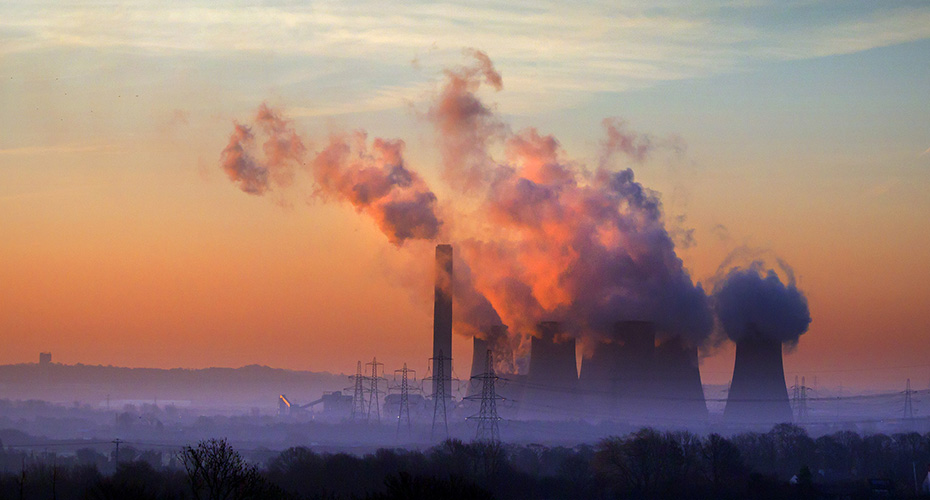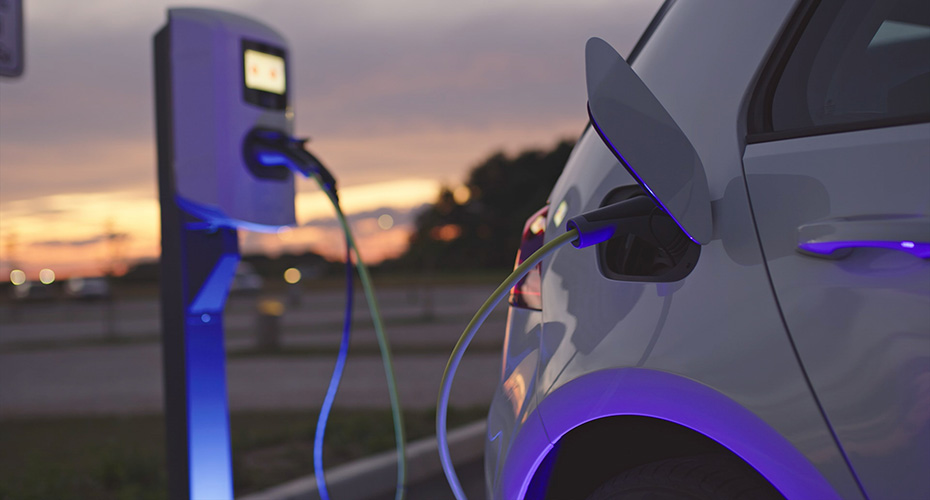Triggering Positive Tipping Points in power generation
2 March 2021
3 mins to read
In the UK, power generation from coal has dropped to almost nothing within the last five years.
A carbon tax, an EU emissions scheme and increased generation from renewables combined to create a Positive Tipping Point: coal power became unprofitable.
This triggered a cascade that has become irreversible, since all UK coal power stations are now either closed or due to close.
"The UK power industry has already crossed a lot of Positive Tipping Points," said Professor Richard Cochrane, Associate Professor of Renewable Energy.
"Historically, renewable energy always had to fight for subsidies, but now onshore wind, solar and – most recently – offshore wind are cost-competitive or even cheaper than producing power from fossil fuels.
"So now we have a real economic driver for producing renewable energy, as well as all the environmental benefits."
"Historically, renewable energy always had to fight for subsidies, but now onshore wind, solar and – most recently – offshore wind are cost-competitive or even cheaper than producing power from fossil fuels."
Professor Richard Cochrane
Associate Professor of Renewable Energy
Global challenge
Professor Cochrane added: "We still need to reduce costs in areas such as offshore wind, so at Exeter we are working to deliver that next Positive Tipping Point.
"We are also working towards Positive Tipping Points in solar, enabling it to be deployed more flexibly in lots of new locations, and continuing to bring down the cost and the energy involved in manufacturing the panels."
Renewables are already generating cheaper electricity than fossil fuels in many countries.
A further Tipping Point could be reached if the financing cost of new renewables drops below that of new coal generation.
Exeter's expertise includes the social, economic and political aspects of renewable energy – which will all play a vital role in the energy transition.
Collaboration is key to the University's approach, with academics from multiple disciplines working together to support the transition to renewables locally, nationally and internationally.


Decentralise, decarbonise, digitise
One major challenge is upgrading power networks to support renewable energy.
"We need to decentralise, decarbonise and digitise," said Professor Zhongdong Wang, Professor in Electrical Power Engineering.
"Energy produced by renewables fluctuates and is often produced in remote areas, so we need a smart grid with extensive battery storage.
"At the University of Exeter, we work closely with all parts of the UK energy industry – from renewable energy generators and smart grid operators to the end users – to make sure we reach Positive Tipping Points to achieve net-zero carbon emissions by 2050."
"At the University of Exeter, we work closely with all parts of the UK energy industry – from renewable energy generators and smart grid operators to the end users – to make sure we reach Positive Tipping Points to achieve net-zero carbon emissions by 2050."
Professor Zhongdong Wang
Pro-Vice-Chancellor and Executive Dean for College of Engineering, Mathematics and Physical Sciences,
Professor in Electrical Power Engineering
Professor Wang said excess energy – such a wind power produced at night – could be used to create hydrogen fuel to power vehicles.
"The energy network will need to evolve rapidly, and Exeter's research can support this," she said.
"We need to control the network in such a way that we can take more and more renewable energy, and when generation is higher than demand we can store that energy or convert to support low-carbon transport."
This reinforcing interaction between renewable energy and low-carbon transport is one of many examples of how Positive Tipping Points could combine to form cascades.

Creating cascades
"A crucial ingredient for any tipping point is that there are reinforcing feedbacks within a system," said Professor Tim Lenton.
"When it comes to our technological and economic systems, those reinforcing feedbacks can come from economies of scale and gradual improvements as technologies develop.
"For example, better battery storage clearly helps both renewable energy networks and electric vehicles – and that feeds back, because electrification of transport will be even better for the climate if it's based on renewable electricity.
"These are just some examples of how, unsurprisingly, everything is interconnected in a global economic system, and there can be positive reinforcing feedbacks that cascade a change in that system to larger scales and across the whole economy."
Like decline of coal power generation in the UK, global energy systems could be on the verge of rapid decarbonisation.
Some Positive Tipping Points in cost, technology and society have been reached. Others could soon be triggered, sparking irreversible positive change.
"These are just some examples of how, unsurprisingly, everything is interconnected in a global economic system, and there can be positive reinforcing feedbacks that cascade a change in that system to larger scales and across the whole economy."
Professor Tim Lenton
Director, Global Systems Institute








